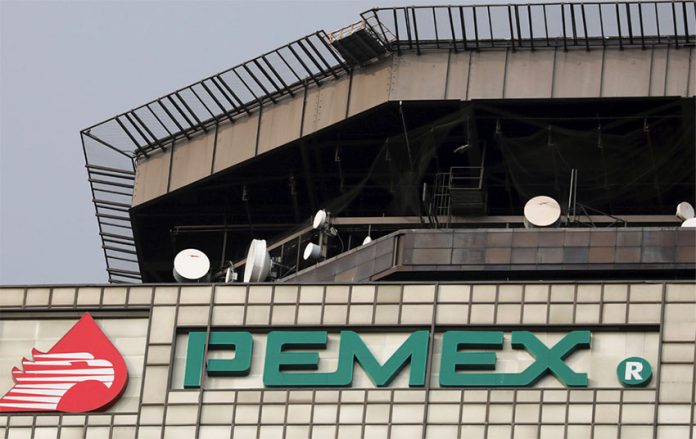Pemex’s new business plan ignores the concerns of rating agencies and experts, according to analysts who predict there will be a downgrade to the state oil company’s credit rating.
“[The rating agencies] gave several warnings and they more or less said what they didn’t like but it seems that none of those warnings are considered. [The plan] is almost like a challenge to lower the rating,” said Adrián Calacaneo, an energy specialist at the business intelligence company IHS Markit.
Presented yesterday by Pemex CEO Octavio Romero, the plan proposes tax cuts, injections of capital and increased oil production for the beleaguered oil company, which has debt in excess of US $100 billion and whose output has been in decline for more than a decade.
But several analysts were critical that the plan doesn’t allow for joint ventures with private companies or farmouts, in which oil leases are assigned to third parties for development.
“It’s a very ideologically loaded business plan, it limits the participation of private companies in a big way and forces Pemex to do everything itself,” said Pablo Medina, vice president of Welligence Energy Analytics.
The plan does allow for service contracts to be issued to private companies but Medina said they won’t provide Pemex with the liquidity it needs to invest in profitable activities.
He told Bloomberg that the company needs “to take advantage of what the energy reform allows, leverage capital and stop trying to do it all by themselves.”
Carlos Serrano, chief economist at the bank BBVA México, said the “main problem is that farmouts won’t resume,” charging that the business plan “will not be so strong” as a consequence.
He told the newspaper El Financiero that the government will have to find an alternative revenue source for Pemex to avoid pressures on the company that could result in a credit rating downgrade or problems for public finances.
Fitch downgraded Pemex to junk status last month with a negative outlook, stating that the company was severely underinvesting in its upstream business and that its high levels of transfers to the government were pressuring cash flow and reinvestment ability.
Mario Correa, chief economist of Scotiabank México, said the plan is overly optimistic with regard to oil production targets, lacks detail and leaves a lot of questions unanswered.
He questioned where the funds for the cash injections would come from and whether the private sector service contracts will be successful. Correa also wondered if the plan would negatively affect Mexico’s sovereign rating.
Analysts at the investment bank Citigroup have already concluded that it will.
Citi said that a downgrade for both sovereign bonds and Pemex is only “a matter of time.”
In a note to clients, the bank said the strategy “doesn’t solve the main structural problems of the company” and “the probability of a rating downgrade by Moody’s to junk status has increased.”
Citi said “the long wait” for the plan “didn’t translate into new actions or ideas.”
The reduced tax burden had already been announced on June 6, it said, and the “business plan repeats the same repetition” about oil production increases. Furthermore, said the bank’s analysts, service agreements with private companies “haven’t worked in the past.”
Citi was also critical of the government’s plan to inject US $7.4 billion into Pemex over the next three years, asserting that it needs $10 billion to $15 billion per year.
In addition, it said the plan will have an impact on public finances in an already difficult economic climate.
With the economy slowing, tax revenue trending downwards, a less optimistic outlook for oil prices and with increased spending on social programs and infrastructure projects, it will be difficult for the government to maintain a primary surplus, Citi said.
As expected, government officials defended the plan.
Alberto Montoya, an undersecretary in the Energy Secretariat, said it “would be very strange” if rating agencies were to downgrade “a company that is taking these decisions.”
President López Obrador said yesterday that the plan was designed to transform “an oil industry in ruins” to one with the capacity to finance national growth.
Source: El Financiero (sp), El Universal (sp)
